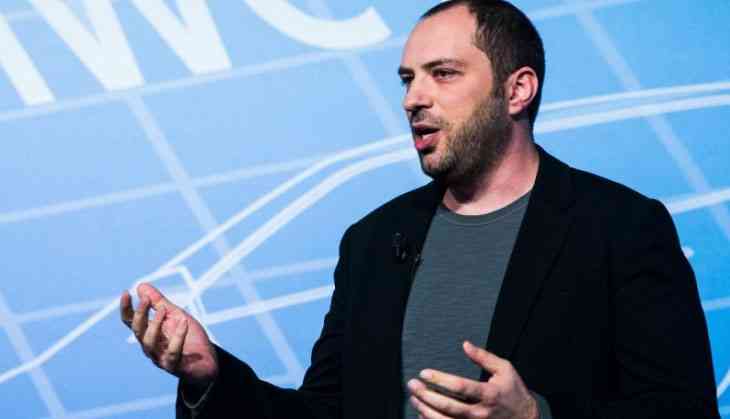WhatsApp co-founder Jan Koum exits after clash with Facebook over data privacy, WhatsApp Payment

WhatsApp has lost one of its co-founders nine years after the company was founded. Brian Acton and Jan Koum, both former employees of Yahoo!, left their job in 2007, took a break from work and then founded messaging app WhatsApp. Nine years later, WhatsApp with over 1.5 billion monthly users, has become the darling of the tech community. Mark Zuckerberg, Facebook's CEO, bought over the company for a whopping $19 billion in 2014.
At some point, things had to come to a screeching halt. Co-founder Koum has stated that he is leaving the company after major arguments with parent company Facebook. What the two were fighting about was data privacy and the business model of the messaging app. As things stand, WhatsApp makes close to zero revenue as the company has long shrugged off any potential advertising on its platform. Facebook has scrapped its 99 cents annual charge it used to dish out to all of its customers.
Koum's post was devoid of any of the details that led to the decision to leave the company. Facebook CEO Zuckerberg responded to Koum in a comment. "Jan: I will miss working so closely with you. I’m grateful for everything you’ve done to help connect the world, and for everything you’ve taught me, including about encryption and its ability to take power from centralized systems and put it back in people’s hands. Those values will always be at the heart of WhatsApp.”
Data privacy
When Koum and Acton had sold WhatsApp to Facebook, they promised to protect what mattered most to the millions of customers on their platform. They promised to preserve the independence and to protect the users' data. To this extent, the company added end-to-end encryption in 2016. The clash over data rose to another level after the Cambridge Analytica scandal broke out and it was revealed that Facebook allowed some third parties to misuse its users' personal information.
Koum's departure comes almost eight months after Acton left the company to start his own non-profit foundation. The duo had said that they would never make connecting the product to a user's Facebook account mandatory.
Furthermore, the duo resisted the government's advancements to create a backdoor into its product. The government argued that this would be useful for counterterrorism and law enforcement measures but Acton and Koum stood firm.
Last year though, Facebook got its way, somewhat. They got WhatsApp to change its terms of service and allow Facebook to access users' phone numbers.
Business model
The other point of contention between Koum and Zuckerberg was Whatsapp's business model. Facebook wanted to eliminate the $0.99 annual subscription fee and look for other methods - like advertising - to increase revenue and user growth.
More recently, Facebook got its way yet again and started letting business set up business profiles - companies like BookMyShow were the first to come onboard in India - and chat directly with their customers. With this move, WhatsApp encryption was weakened and businesses could chat directly with customers and read their messages.
Moreover, the two also clashed over the introduction of a mobile payments system (still in trial phase) on WhatsApp in India.
Earlier in 2018, WhatsApp support for Unified Payments Interface (UPI) in India. UPI is a payments platform in India and allows users to send money to a Virtual Payment Address (VPA) that is linked to someone's bank account. WhatsApp basically acts as a platform. WhatsApp sends transaction instructions to PSPs that are processed by UPI.
According to the terms of service of WhatsApp payments, the responsibility lies between the bank and the PSP and to carry out these payments, WhatsApp collects a lot of information from the user that is further shared to Facebook and others, "To send payment instructions to PSPs, maintain your transaction history, provide customer support, and keep our Services safe and secure, including to detect, prevent, or otherwise address fraud, safety, security, abuse, or other misconduct, we share information we collect under this Payments Privacy Policy with third-party service providers including Facebook."
In short, Facebook has been actively gathering financial data of its users and this was another major point of concern for Koum. WhatsApp didn't want to kill off its end-to-end encryption to accommodate UPI. For now, WhatsApp chats are end-to-end encrypted but WhatsApp Payments isn't.
Both Koum and Acton have been critical of adverting in apps. In fact, in the wake of the Cambridge Analytica scandal, Acton has been at the forefront of the #DeleteFacebook movement.
Koum's departure comes 3.5 years after the acquisition by Facebook. That means he's able to fully vest his stock options though that isn't the reason he is leaving. After Acton, it was only a matter of time before Koum became fed up with Facebook's increasing interference in the company. Other employees plan on leaving as well, according to The Washington Post, but only in November, after they can exercise their stock options.
First published: 1 May 2018, 16:38 IST






![BJP's Kapil Mishra recreates Shankar Mahadevan’s ‘Breathless’ song to highlight Delhi pollution [WATCH] BJP's Kapil Mishra recreates Shankar Mahadevan’s ‘Breathless’ song to highlight Delhi pollution [WATCH]](http://images.catchnews.com/upload/2022/11/03/kapil-mishra_240884_300x172.png)

![Anupam Kher shares pictures of his toned body on 67th birthday [MUST SEE] Anupam Kher shares pictures of his toned body on 67th birthday [MUST SEE]](http://images.catchnews.com/upload/2022/03/07/Anupam_kher_231145_300x172.jpg)






